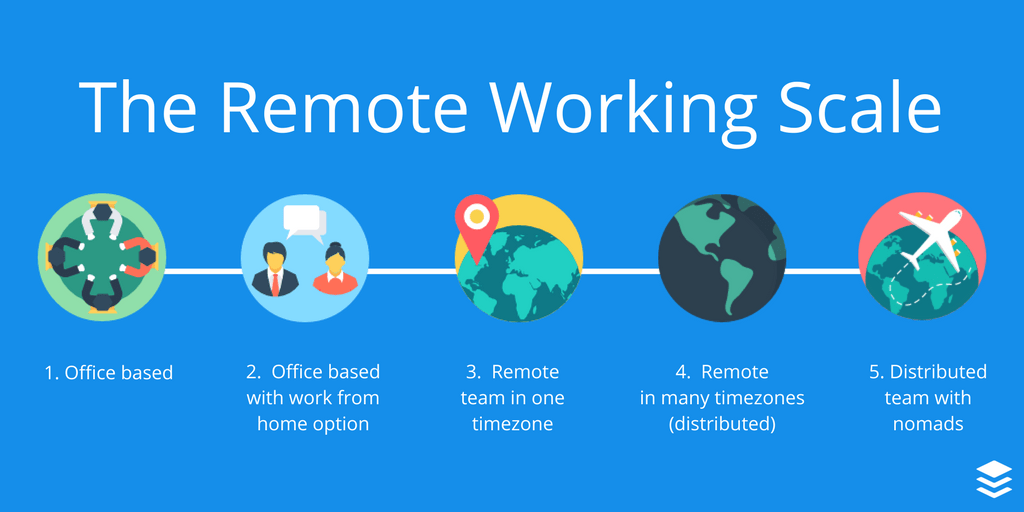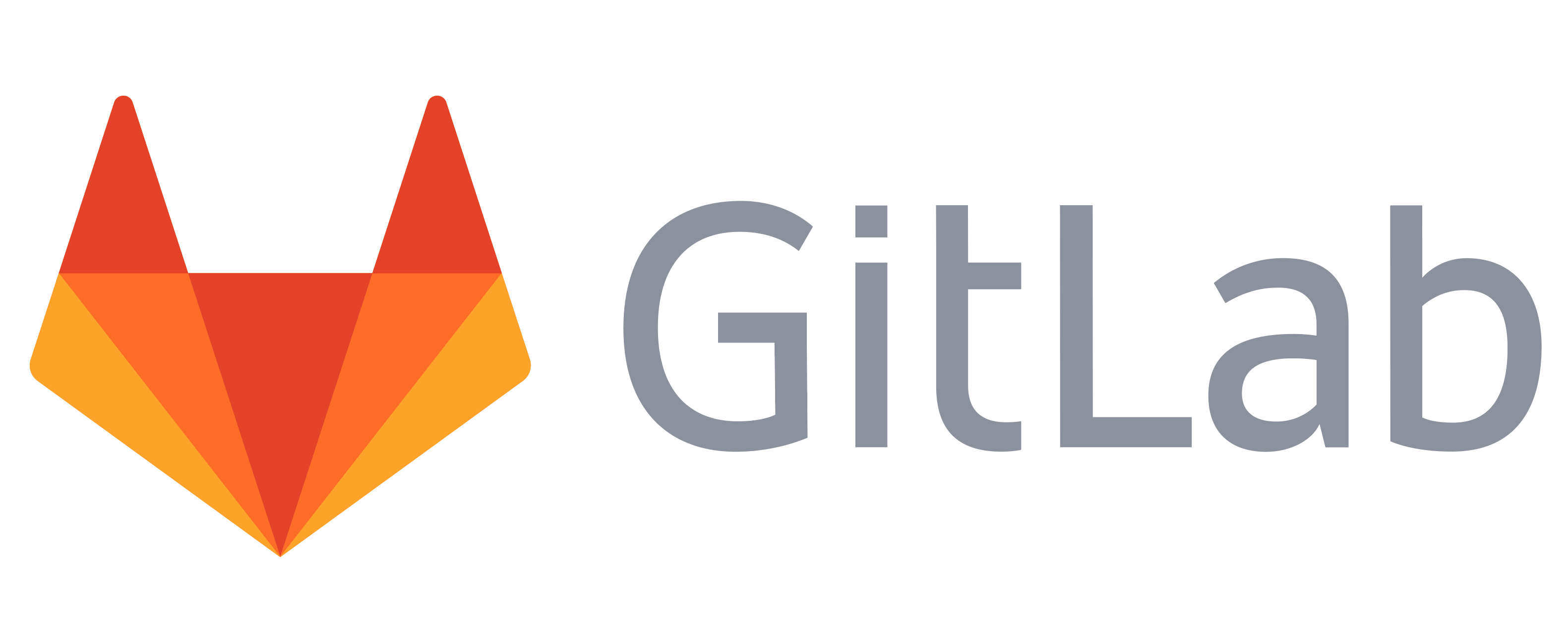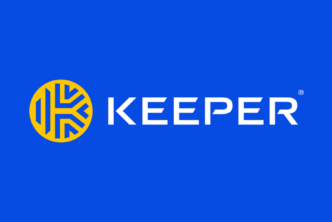Table of Contents
Work from home companies: who they are, what they do
No carpooling, no colleagues stopping by your sit with a quick question, no need to change out of your sleepwear if you feel like you don’t want to… what’s not to love about the work from home culture?
This perk is one of the hottest workplace trends out there, and luckily, employers are taking note.
As a result, more and more companies provide an opportunity to work from home on an occasional or fully remote basis.
We at YouTeam are one of those passionate remote work advocates. That’s why we want everyone to understand and embrace the numerous advantages of remote work.
Today, a handful of world-renowned employers are taking the concept of remote work to a whole new level replacing their open spaces with small, yet cozy virtual rooms.
Dubbed ‘distributed companies’ or ‘fully remote companies’, these employers usually have no physical office — just a virtual space, where workers telecommute, not depending on where they are actually based out of.
Contrary to popular belief, these work from home companies don’t lose out to other employers in terms of the corporate culture they build.
Remote employers invest in various initiatives, including tech conferences, offsite team buildings, and all other possible forms of retreats. Altogether, these activities build a sense of belonging and community, no matter how distributed the members of one team are.
Sounds like a dream come true? Probably because it is.
Good news: we put together this all-about-remote-work guide to help you manage efficient virtual teams and build a remote-first business.
Let’s go! ?
5 steps to embracing remote work
Here’s how Buffer defines different lifecycles of the work from home culture.

1. Office based
In this model, a team is located in one or several offices. This way of organizing working processes is considered the most common today.
2. Office based with an occasional work-from-home policy
Such employees usually work in one or more physical offices, but allow workers to work from home for a limited time in a week.
3. A fully remote team within a single time zone
It’s a truly remote working environment with no needs to show up in the office (even if there is any).
4. A fully remote team spread across different time zones
In this model, members of one remote team have a minimum time overlap needed to collaborate and communicate effectively. For this reason, in this truly remote setup, asynchronous communication is crucial to the company’s overall success.
5. A fully distributed team with digital nomads
This remote working style is the most advanced. It’s a fully remote working environment with some truly nomadic teammates regularly traveling all across the globe.
Top work from home companies that hire remote employees today
Want to integrate Slack with Trello, Gmail, Google Calendar, and Stripe? Calm down — there’s no need for any coding. Zapier is a glue that connects and automates all your apps, creating easy workflows that allow them to work altogether.
Zapier is a completely distributed company embracing a very inclusive and welcoming culture. With a team of over 100 people working remotely in 15+ locations, Zapier manages to create a top-notch product — the app designed with the needs of busy people in mind.
Just like YouTeam, Zapier is an advocate of remote work culture. We could even confirm this ourselves when we spoke to Bryan Helmig, CTO and Co-Founder of Zapier a while ago.
“We’re a team of 100+ people living and working remotely in 15+ countries. We’re working hard to build a diverse and collaborative team that can empathize with each other to solve hard problems and build a product we can be proud of.”

InVision creates a handy design prototyping tool that is currently used by such world-renowned companies as Airbnb, Evernote, Adobe, and Salesforce. With InVision, design teams can easily collaborate and test the results thanks to a very intuitive, user-friendly interface.
To its remote crew of over 220 workers from 20 different countries, InVision offers a bunch of non-office perks. These include personal medical insurance, broad travel and conference sponsorships, paid gym memberships, and even unlimited number of Starbucks drinks.
Important to mention, InVision makes regular weekly check-ins and conducts anonymous polls. This ensures all workers at InVision stay happy and engaged all year through.
“InVision is a fully distributed company with employees in more than 20 countries around the world. Together, we’re on a mission to help you make every digital experience magically better.”

Similarly to Zapier and InVision, Buffer is also fully distributed. Currently, more than 80 remote employees are working for the company from several different countries.
Today, over 60K happy customers are actively using and paying for the social media management instrument created by Buffer. The reason is obvious: with Buffer, synchronous sharing across multiple social networks becomes a breeze.
Buffer also succeeds at remote culture building. Transparency is a critical element of its corporate culture, that’s why every piece of information —from annual run rate to salaries — is public at Buffer.
In addition to it, Buffer spares no perks, providing its employees with unlimited vacation, yearly international retreats, and free books. Dream job!
“We’re a fully distributed team, meaning that we’ll be fixing bugs and replying to your questions from around the world! Living in a place that makes you happy is one of our core beliefs, and has stayed with the company since the beginning.”
 Gitlab is a fully remote company with the staff divided between three different continents. The company creates a DevOps platform that provides you with whatever it takes to completely develop your software.
Gitlab is a fully remote company with the staff divided between three different continents. The company creates a DevOps platform that provides you with whatever it takes to completely develop your software.
Gitlab’s remote manifesto defines the key corporate values, which include establishing real-life relationships and giving credit when credit’s due. Coordination and communication are key to efficiency in a Gitlab’s fully remote working environment.
To keep its staff engaged, Gitlab offers a wide range of employee-friendly benefits, which include health insurance, paid holidays, vacation & time-off, and regular social events.
“Gitlab is an open source company with over 485 employees working remotely. Our mission is to change all creative work from read-only to read-write. When everyone can contribute, consumers become contributors and we greatly increase the rate of human progress.”

Hubstaff was founded back in 2012. Two empathetic visionists decided that the world needs a better way to track freelance work, so they built a comprehensive product that can make it happen.
Nowadays, well over 8K remote teams are using Hubstaff. This time-tracking tool, with attendance scheduling and automatic payroll processing functionalities built-in, helps remote teams all over the globe stay productive.
Now comprised of over 30 team members, Hubstaff continues to disrupt the future, pushing the remote work culture toward greater success. At Hubstaff, workers enjoy a flexible schedule and freedom to work from wherever they want.
“A remote team building software to power their own remote team, and selling it to remote teams? Yeah, that’s us. We believe the best work is done with the individual worker in mind. We’ve grown our team to over 30 wonderful people across the globe.”
 The company develops Todoist — a top-notch productivity app that helps millions of people stay focused while handling multiple tasks and projects. Todoist has a millennial-friendly minimalist design and is available as a mobile, desktop and web app or a browser extension.
The company develops Todoist — a top-notch productivity app that helps millions of people stay focused while handling multiple tasks and projects. Todoist has a millennial-friendly minimalist design and is available as a mobile, desktop and web app or a browser extension.
The company behind Doist is completely distributed, with 61 team members spread across 24 different countries. Since Doist is built by people from all over the world, it has better chances of resonating with a global workforce. For this reason, remote culture is a core value of a company.
Remote employee perks at Doist include a generous budget on hardware/software, paid vacation, and additional perks concentrated on employee mental health and well-being.
“Our 61 team members come from 24 different countries ranging from Jamaica to Poland, Taiwan to Australia. Our mission is to build the future we want to work in. One where people can work without distractions on things they’re passionate about.”

‘Practice what you preach’ is probably this company’s motto. Being 50% remote, Trello creates a great tool that makes collaboration between remote workers easier.
Trello is focused on continued growth. It is much easier for them to find and hire talent remotely if they are looking outside of the HQ area. Though the company is not fully distributed, work from home culture is an indistinguishable element of its value set.
Trello even came up with a few not-so-ordinary approaches to keeping remote employees motivated. One of them is called Mr. Rogers. Two workers are randomly paired each week for a quick, casual conversation. This way, workers get to know each other better and learn more about what the company is doing as a whole.
Good job, Trello!
“Adding ‘embrace remote’ to our list of team values was easy because it reflects the larger effort we are putting into Trello every day… Oh, and we all get to eat cake. Everyone gets a cake delivered to their place on their birthday.”
 Known as the creator of the easiest-to-use time-tracking software, Toggl is also a company embracing the work from home culture. Though the Toggl team spans 5 different countries and 9 time zones, its members regularly meet at retreats which take place on the coast of the Mediterranean Sea.
Known as the creator of the easiest-to-use time-tracking software, Toggl is also a company embracing the work from home culture. Though the Toggl team spans 5 different countries and 9 time zones, its members regularly meet at retreats which take place on the coast of the Mediterranean Sea.
Toggl embraces creative freedom & collaborative working environment. Its team members are free to set their goals, travel, and work from anywhere in the world. This is what reflects Toggl’s corporate values — which celebrate autonomy, open communication, and eagerness to experiment.
Want to learn more about the work from home culture at Toggl? Our guide to running a remote development team takes a deeper dive into the topic.
“One thing we all share is a belief that software should empower people, and not get in their way. We also share memes, but to get in on that you’ll have to join our team.”

Basecamp is a company behind the world-renowned collaboration platform and project management tool. This company consists of over 50 workers spread across 32 different cities around the globe. The team is not fully distributed, but a part of its members choose to work from home. Even so, every member of the Basecamp team is free to work from whatever they want to.
Basecamp is a proactive supporter of the remote work culture. The company’s CEO, David Heinemeier Hansson, even wrote a book about remote work. Check it out if you want to take a deeper insight into the pros and cons of this corporate culture.
“We started out with four people, and today we’re a company of about 50 spread out across 32 different cities around the world. Our headquarters is in Chicago, but everyone at Basecamp is free to live and work wherever they want.”
 Automattic is a great family of over 700 remote workers spread across 62 countries, from Zimbabwe to Argentina.
Automattic is a great family of over 700 remote workers spread across 62 countries, from Zimbabwe to Argentina.
The company embraces a remote work culture providing each employee with an opportunity to work from a place they choose independently. Instead of offices, the company provides remote teammates with a $250 monthly grant to spend at Starbucks or co-working spaces.
Though Automattic embraces and actively promotes the work from home culture, the company gives its employees a chance to see each other in person. By occasionally bringing the members of one distributed team together, the company keeps its remote workers united around one shared corporate goal — being happy.
“Everyone works from the location they choose. We’re spread out all over the world in more than 60 countries. Because of the geographic variance, we’re active 24/7. We care about the work you produce, not just the hours you put in.”
Over to you
The future is remote, and it is calling. Are you ready to answer?
If you don’t know where to start, check out other articles by YouTeam, where we explain how working remotely with dedicated developer teams can bring a considerable advantage to your business.








